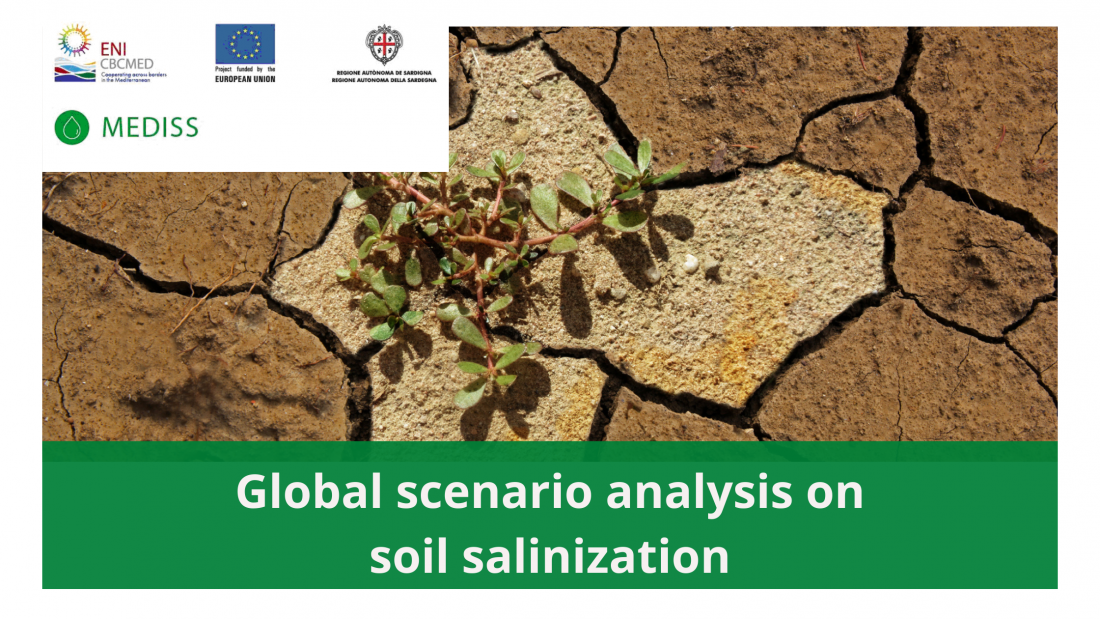[MEDISS] Global scenario analysis on soil salinization is now available

The Food and Agriculture Organization (FAO) launched a map of salt-affected soils covering the whole planet. Discover how MEDISS supports relevant interventions aiming at reducing the impacts of soils salinization.
The Global Map of Salt-Affected Soils (GSASmap) is online. FAO published it on the opening day of the Global Symposium on Salt-Affected Soils, grouping over 5000 experts.
The map project involved more than 350 national consultants collecting methods and data from over 118 countries.
Soils salinization is mainly related to water management and climate change. Today, more than 830 million hectares are affected, 8.7% of the planet. The most endangered areas are traditionally arid or semi-arid environments in Africa, Asia, and Latin America. But, the result of the research describes a general worsening of irrigated soils all over the world.
Soil salinization is now a menace for a large part of agriculture systems. Between 20 and 50 % of agricultural lands in all continents are too salty and, over 1.5 billion people are starting to experience a reduction in soils productivity due to soil degradation.
Water and soils management practices are the most effective solution to soil salinization. In particular, soils are fragile resources menaced by overexploitation and changing climate conditions. The relation between water and soils health is direct. Waters affect soils quality in several ways, including irrigation with groundwaters, sea-level rise, and seawater intrusion.
MEDISS project supports relevant interventions aiming at reducing the impacts of soils salinization and water quality.
Palestinian partners are collecting surface water in Wadi Quilt. In Jericho City, underground saline water and treated water from Wastewater Treatment Plant, are blended with surface waters. Increased water quality will help Palestinian farmers to have better quality and quantity of water for irrigation. In the meantime, increasing surface salinization of soils can be reduced.
In the Governorate of Aqaba (Jordan), MEDISS works on a desalination plant of brackish groundwater, increasing treatment systems efficiency and energy supply sustainability.
Less fertile and less productive soils directly affect biodiversity, poverty levels, and in extreme cases, food shortages.
Approaching World Soil Day, organized by FAO on December 5, this year's slogan: "Halt soil salinization, boost soil productivity" remember us the way forward.









